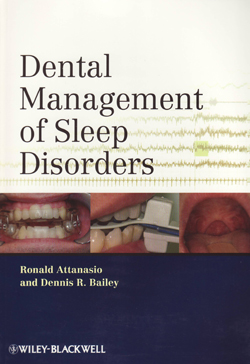 In the past several years, there has been an increasing involvement of dentistry as part of the management team approach to sleep disorders, particularly sleep-related breathing disorders (SRBD).
In the past several years, there has been an increasing involvement of dentistry as part of the management team approach to sleep disorders, particularly sleep-related breathing disorders (SRBD).
While serving as director of the Orofacial Pain Center at the New Jersey Dental School in the late 1980s, Ronald Attanasio, D.D.S., began to study sleep disorders and their effects upon the health of the human body.
Although the medical literature was replete with research and clinical articles and textbooks, there was only a limited amount of dental literature pertaining to the involvement of dentistry in the management of SRBD.
Dr. Attanasio, now a professor in the UNMC College of Dentistry’s Department of Adult Restorative Dentistry and director of the Temporomandibular Disorder and Facial Pain Clinic, has recently published the first book that is focused on an interdisciplinary and comprehensive approach to diagnosing and treating sleep disorders from the perspective of dentistry.
|
“Although there are many articles being published in various journals regarding oral appliances or surgery as options for the treatment of SRBD, the field was lacking a comprehensive work such as a textbook that could serve as a single resource for learning and teaching,” Dr. Attanasio said.
The practical reference-based book:
- Highlights the background to sleep disorders;
- Discusses the dentist’s role in the diagnosis and treatment as part of the medical management team;
- Includes an overview of various current treatment modalities; and
- Investigates the relationship of SRBD to dental and orofacial causes.